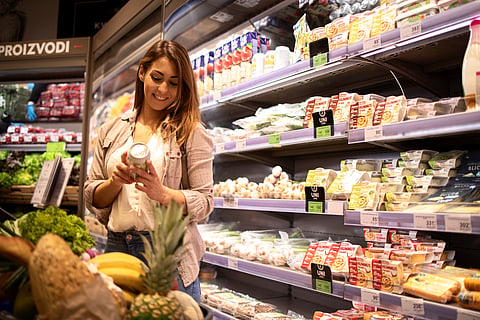Excessive consumption of carbohydrates puts a strain on the pancreas, thereby increasing the risk for type 2 diabetes. An average Indian consumes 2,000 - 3,000 calories per day far more than necessary. Reducing calories consumed is crucial to maintaining good health.
Reference:
1. Shobana S, Sangavi G, Wuni R, et al. Assessment of front and back of pack nutrition labels of selected convenience food products and snacks available in the Indian market. PLoS One. 2024;19(12):e0314819. Published 2024 Dec 6. doi:10.1371/journal.pone.0314819
(Input from various sources)
(Rehash/Dr.Swati Sharma/MSM)


